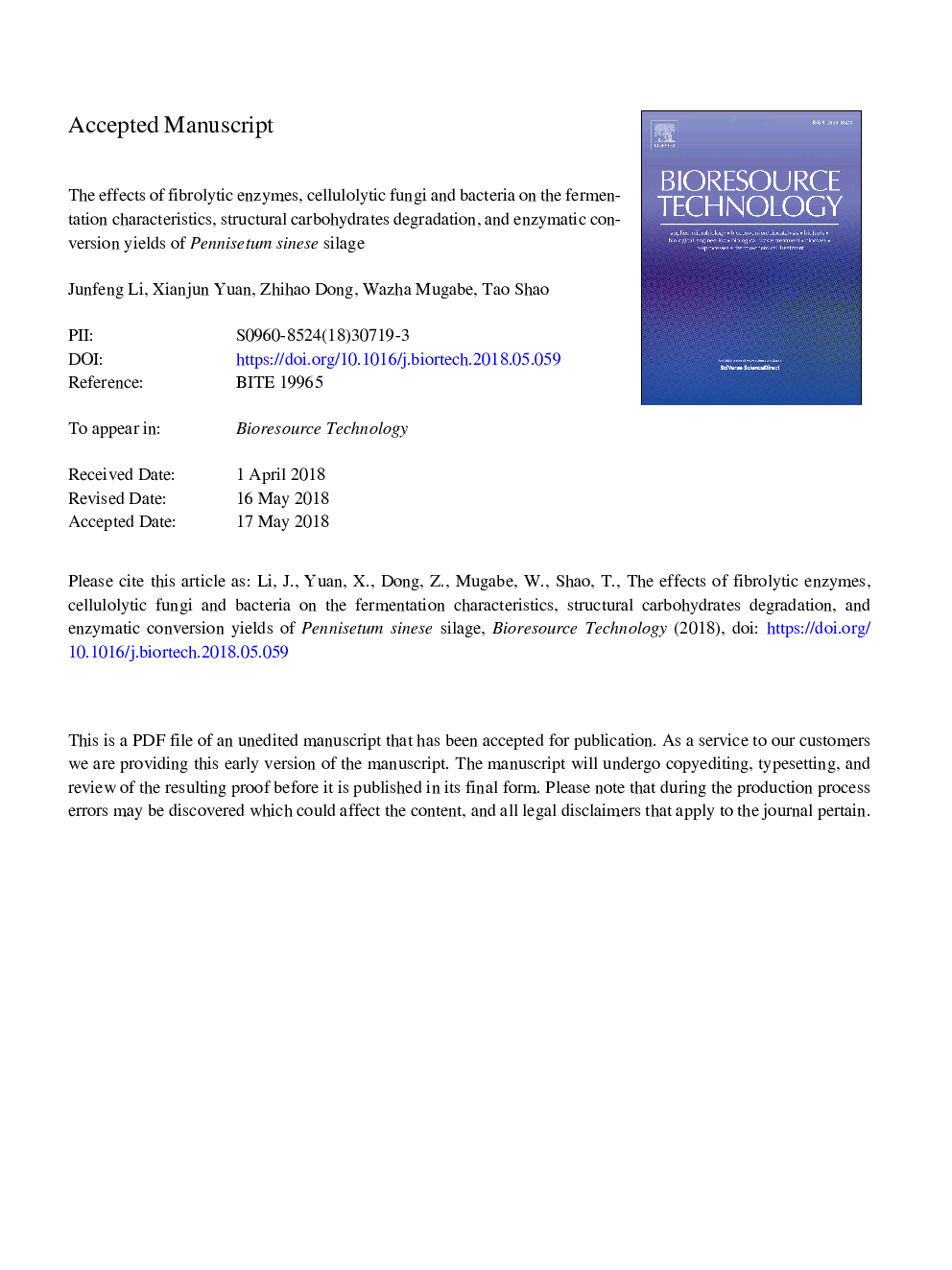| Article ID | Journal | Published Year | Pages | File Type |
|---|---|---|---|---|
| 7066477 | Bioresource Technology | 2018 | 32 Pages |
Abstract
Biological inoculants were tested on Pennisetum sinese for their effects on fermentation characteristics, structural carbohydrates degradation, and enzymatic conversion yields. Pennisetum sinese was ensiled without additive, Lactobacillus plantarum (Lp), Trichoderma reesei (Tr), fibrolytic enzymes (E), and Enterococcus faecium (Y83) for 90â¯days. Y83 silages had higher LA and lower AA, ammonia-N and DM loss as compared to E and Tr silages. Tr and E had superior effects for degrading lignocellulose while Y83 had intermediate effects. The first-order exponential decay models (R2â¯=â¯0.928-0.998) predicted nonstructural carbohydrates kinetics and demonstrated high water soluble carbohydrate (g/kg DM) preservation potential in Y83 (21.40), followed by Tr (18.94) and E (16.74). Addition of Y83 improved the conversion efficiency of P. sinese silage than Tr and E, indicated by higher glucose and total reducing sugars yield (22.49 and 36.89 w/w % DM, respectively). In conclusion, Y83 can be exploited for the ensiling lignocellulosic biomass before grass processing.
Related Topics
Physical Sciences and Engineering
Chemical Engineering
Process Chemistry and Technology
Authors
Junfeng Li, Xianjun Yuan, Zhihao Dong, Wazha Mugabe, Tao Shao,
